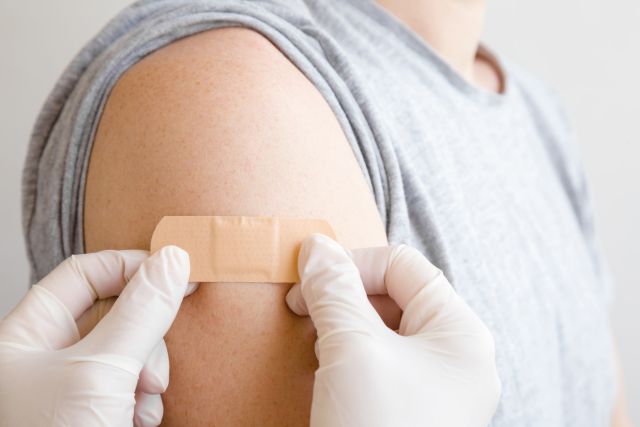Updated on November 14, 2024.
Between 2010 and 2016, less than half of adults in the United States were getting their recommended vaccinations, according to the Centers for Disease Control and Prevention (CDC).
Here’s the most important information about what shots you should be getting, and when.
The following vaccines are almost always covered by private insurance. If you are enrolled in Medicaid or Medicare Part B or Part D, check with your drug plan provider regarding coverage.
Flu shot
Getting your annual influenza (flu) shot can help prevent the flu (which affects the nose, throat, breathing tubes, and sometimes the lungs). Having a flu shot lowers your chances of developing the flu at the same time as COVID-19 (corona virus disease 2019, which can cause mild to severe illness and breathing problems). The flu shot can also decrease your chances of developing serious complications from the flu that can require hospitalization, such as pneumonia (an infection of the lungs).
Vaccination against the flu may also reduce your risk of heart disease, according to Michael Roizen, MD, Chief Wellness Officer at the Cleveland Clinic and a Sharecare advisory board member.
The best time to be vaccinated for the flu is by the end of October, according to the CDC. But it’s never too late. Getting your annual shot in late fall or winter is better than skipping it entirely.
With some exceptions, everyone aged 6 months and older should have a flu shot.
Tetanus booster
In 2012, there were 48,277 reported cases of whooping cough (pertussis) in the United States—the highest number since 1955. The number decreased to 18,617 by 2019.
While whooping cough (pertussis) can be deadly for babies, it isn’t fatal in adults although it can cause coughing for months. Pertussis can cause coughing so severe that it may even result in broken ribs.
The best way to stay protected against pertussis is to stay up to date on your tetanus booster (Tdap) every 10 years. The Tdap vaccine usually includes a booster for pertussis and diphtheria (a bacterial infection that causes breathing and heart problems which can be fatal), says Kelly Traver, MD, an internal medicine specialist in Menlo Park, California.
Another option: If you received a Tdap vaccine at age 11 or older, you can choose to get a Td booster which protects against tetanus and diphtheria (but not pertussis), instead of a Tdap booster which protects against all three infections (tetanus, pertussis, and diphtheria).
Whatever their Tdap vaccine history, it’s recommended that pregnant people receive the vaccine between Weeks 27 and 36 of pregnancy—the earlier, the better.
Shingles vaccine
Shingles is a red, blistering, painful rash that often develops on the face, neck, and sides of the torso. The rash itself typically takes between two and four weeks to clear up, but nerve pain can linger for months afterward. Sometimes, it can be debilitating.
About one-third of adults will have shingles at some point, according to the CDC, and your risk increases as you age. Fortunately, the Shingrix vaccine offers strong protection against the virus that causes shingles. If you’re 50 or older, ask your healthcare provider (HCP) about Shingrix, even if you’ve received a different shot in previous years.
Pneumococcal vaccination
The pneumococcal vaccination protects against a bacterial illness that can cause severe illness, including pneumonia which carries serious risks for older adults. Whatever your history with pneumococcal vaccines, ask your provider about being vaccinated if you’re:
- Age 50 or older
- Between ages 19 and 49 and a smoker
- Between ages 19 and 49 and have certain health conditions, including diabetes and heart disease






